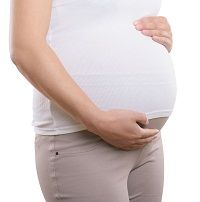Article
Maternal Rheumatoid Arthritis Linked to Premature Births
Author(s):
Preterm births and low birth weight were linked to a mother's rheumatoid arthritis status, a study published in Arthritis & Rheumatology concluded.

Women with rheumatoid arthritis (RA) are more likely to birth premature babies or babies with low birth weights, according to findings published in Arthritis & Rheumatology.
Studies have demonstrated an association between maternal rheumatic diseases and a range of adverse pregnancy outcomes, mainly preterm birth and low birth weight. However, very few studies have examined pregnancy in terms of RA specifically. Women are effected by RA between 2-3 times more often than men, and are often diagnosed during their childbearing years.
Researchers from the University Hospital in Denmark observed almost 2 million Danish children born in Denmark between 1977 and 2008 from the national registries. The investigators identified 13,556 children who were exposed to maternal RA, when the mother was diagnosed prior to giving birth, or maternal preclinical RA, when the mother was diagnosed after giving birth, to pinpoint the differences in indicators of fetal growth.
Children born to mothers with RA had similar measurements in birth length, head length, and abdominal circumference at birth compared with the babies of mothers without RA. For the 2,101 babies born to mothers with RA, birth weight was about 3 oz lower and placenta weight was about .5 oz lower than babies born to mothers without the disease. Similar results were found from the data of 11,455 children born to mothers with preclinical RA.
The preterm birth risk was higher in children exposed to maternal RA and preclinical RA than not exposed to the disease with an odds ratio of 1.48 and 1.32, respectively. The RA status of the father was not found to impact fetal growth or preterm birth risk.
“Obstetricians should be aware of the increased risk of preterm birth in women with RA and among those with preclinical signs of the disease,” study leader Ane Rom, MPH, explained in a press release. “For women with RA, we found only a small reduction in fetal growth in their babies, which has little impact on the children immediately following birth. The long term health effects for children born to mothers with RA need further investigations.”





